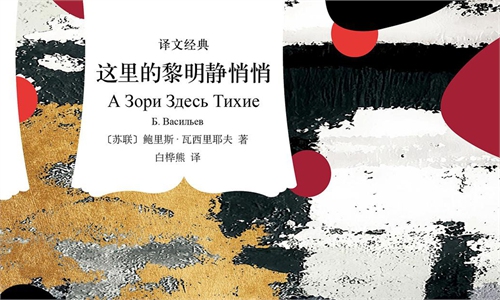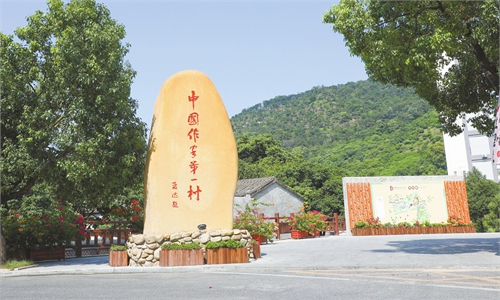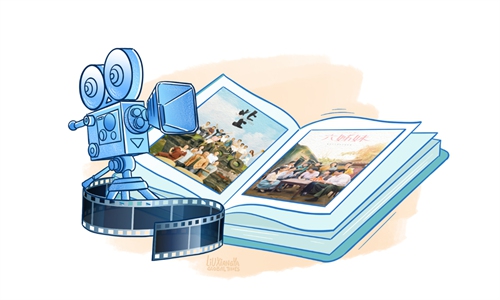ARTS / CULTURE & LEISURE
Rediscovering literary education as aesthetic education
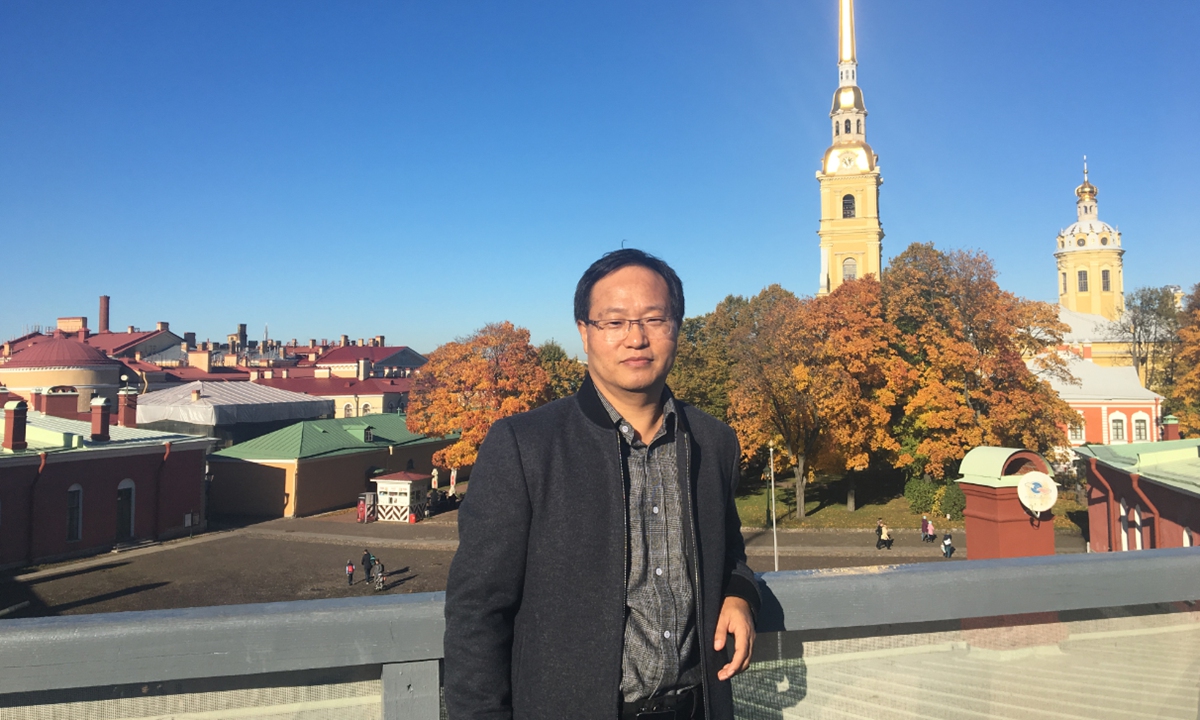
Ding Guoqi
Editor's Note:Exploring the profound integration of literary and art education within the philosophy of "life education," Chinese researcher Ding Guoqi, director of the Institute of Literature at the Chinese Academy of Social Sciences, distinguishes "life education" from conventional intellectual instruction, defining it as a self-driven process of awakening and self-realization that respects the individuality of the learner. Using literary education as a case study, he argues that literary works - imbued with authors' life experiences and philosophical insights - serve as bridges for emotional and spiritual connection between creators and readers. Unlike "language education," which focuses on technical knowledge, literary education is an art form that nurtures aesthetic sensitivity and emotional depth through immersive engagement with various texts.
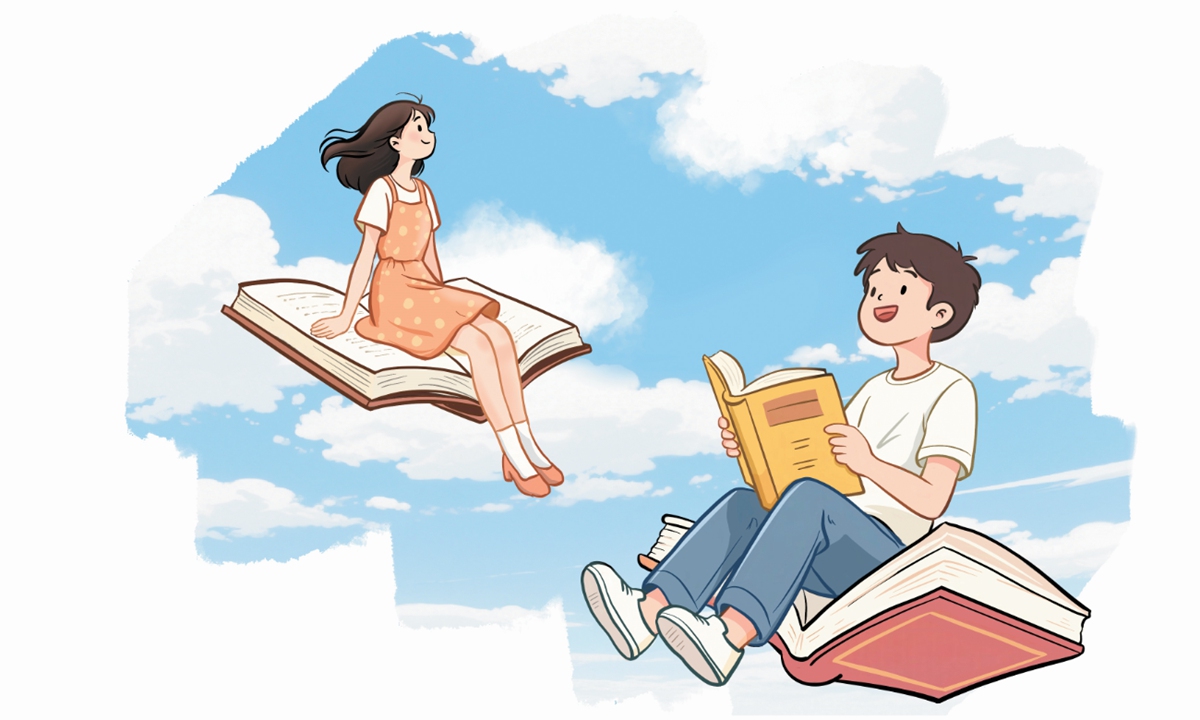
Illustration: Liu Xidan/GT
The genuine fulfillment of an individual life through excellent artistic works is inseparable from education. Literary and art education is precisely the key to rebuilding artistic faith in our contemporary era. Chinese scholar Huang Kejian once proposed the concept of "life education," defining it as the edification or enrichment of "life," enabling education to "return to human life."In my understanding, this life education differs fundamentally from conventional intellectual education or didactic instruction. Life education emphasizes respect for the individuality of the educated. It is an educational philosophy that achieves its goals through the awakening of the educated individual's self-consciousness. In essence, it represents a form of "self-education" and "self-realization" for the subject.
Applying the basic tenets of life education, I will now discuss my views on contemporary literary and art education, using literary education as an example.
Literary education is a pedagogical approach that influences the readers' emotions, perspectives, and values through the process of reading, appreciating, and understanding literary works. Its subject is the literary work, and its recipients are the readers. A great work embodies the author's rich life experience, societal insights, profound reflections on life, and persistent pursuit of beauty and ideals. Consequently, it inherently anticipates readers who can genuinely grasp and comprehend its essence. Both the work and the reader are indispensable; without either, genuine reading cannot occur, and no resonance between the work and its audience is possible. Literature is life-oriented as it requires life to engage with life, soul to touch soul.
Qing Dynasty (1644-1911) writer Cao Xueqin wrote in Dream of the Red Chamber, "Pages full of idle words; Penned with hot and bitter tears. All men call the author fool; None his secret message hears." Does this not express his yearning for readers who truly resonate with his heart? And for readers, encountering a great literary work is indeed a kind of fortune. Thus, the education offered by excellent literary works aligns perfectly with life education.
The work acts like an "enlightened one," awaiting the emergence of "those who will be awakened." The lives and emotions of the author, the characters, and the reader anticipate confrontation and collision. Both the author and reader hope that through the act of reading, a mutual fulfillment will occur. This is the ultimate goal pursued by literary education.
Literary education is a form of art education, not knowledge education. It fundamentally differs from what we typically understand as "language education." Language education seldom explores the most vivid, lifelike qualities inherent in the processes of creation and appreciation.
Literary creation and aesthetic appreciation emphasize not fixity or uniformity, but subjectivity, emotions, and the rich, complex, and multi-layered manifestation of the subject's life.
For a long time, influenced by the prevalence of "language education," people have often conflated literary education with language education, perceiving it merely as a form of knowledge transmission. This misconception has largely caused people to lose interest in literature, severely eroding the profound life-affirming depth and breadth intrinsic to literature, robbing it of its charm, driving away its readers, and contributing to the lamentable status of literary education today.
Of course, the decline in the status of literature and literary education today is also attributable to factors like the development of the internet, the prevalence of visual culture, and shifts in modern consumer habits. These factors not only consume vast amounts of reading time but also cultivate habits of superficial, fast-food-style appreciation, blunting our organs for perceiving beauty. Therefore, to discuss literary education today requires "restoring" it as a form of art education, not knowledge education. We must reverse what was wrongly inverted.
The unique characteristic of art education lies precisely in using artistic imagery, which is a mode of imaginative thinking that nourishes, influences, and potentially purifies the educated through beauty and emotion. Art education is essentially aesthetic education, intrinsically linked to aesthetic sensibility and emotion.
Chinese educator Cai Yuanpei stated in the entry for Aesthetic Education in the Educational Encyclopedic Dictionary, "Aesthetic education applies the principles of aesthetics to education with the goal of cultivating sentiment." Western scholar Herbert Marcuse also argued that the recipient can always recreate this happiness in the pleasure of art.
In China, I doubt no one is unfamiliar with Liang Qichao's call for a "Revolution in the Field of Fiction." In his essay, he claimed, "To improve social governance today, we must start with a revolution in fiction! To renew the people, we must begin with new fiction!" While Liang perhaps overstated the role of fiction in national salvation and improving people's lives, his conviction stemmed from his deep appreciation of art's aesthetic-educative power. Similarly, Lu Xun's shift from medicine to literature reflects the immense role he attributed to literature-as-art in transforming human nature and society.
Finally, I wish to emphasize once more that the ultimate realization of literature education as a form of the life education depends entirely on the readers' deep, careful, and attentive experience and study of the work. Anyone who imagines they can grasp a work's essence and accept its educational value without genuinely reading it is deluded. Especially today, in the era of images and the internet, literary education must redouble its emphasis on this reading-centered approach.
Cultivating healthy emotions and aesthetic sensitivity is not only a basic requirement for individual self-improvement and cultural refinement, but also a crucial means to counter humanity's increasing utilitarianism and estrangement from aesthetics.
The author is the director of the Institute of Literature at the Chinese Academy of Social Sciences
